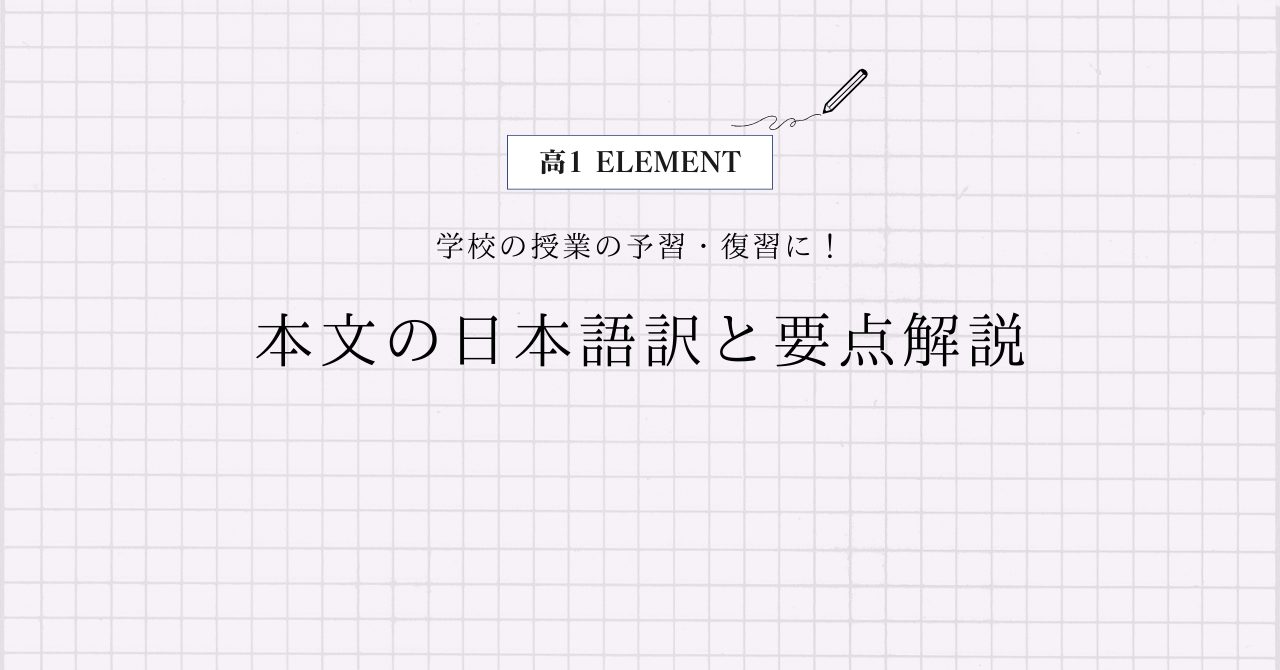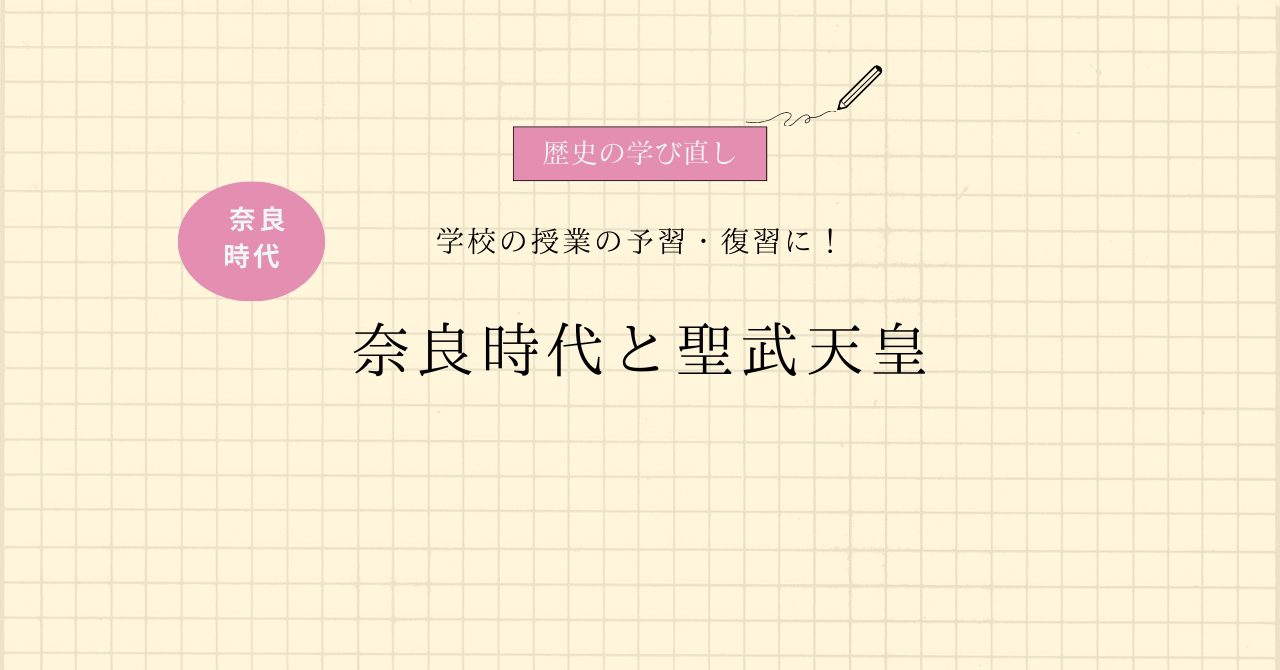三省堂 高1ELEMENT Lesson3 Section1の本文の日本語訳と重要箇所の解説です。
Lesson3-2, 3-3, 3-4の解説はこちらからご覧ください。
>高1ELEMENT Lesson3 Section2 本文和訳
>高1ELEMENT Lesson3 Section3 本文和訳
>高1ELEMENT Lesson3 Section4 本文和訳
- ELEMENT Lesson3 Section1 本文と日本語訳
- ELEMENT Lesson3 Section1 重要事項の解説
- Sisters Melati and Isabel were 10 and 12 years old when they were inspired by a lesson in school in Bali about significant people such as Nelson Mandela, Lady Diana, and Mahatma Gandhi.
- They returned home and wondered, “What can we do as children in Bali, NOW, to make a difference?”
- That was the very beginning of their campaign called “Bye Bye Plastic Bags.”
- It started in 2013 and has now grown into a well-known international movement which says NO to plastic bags.
- Bali is known by locals as an island of gods and a green paradise.
- People in Bali, however, produce 680 cubic meters of plastic garbage a day.
- Amazingly, this is about the size of a 14-story building, but less than 5% gets recycled.
- The rest ends up in drains, rivers, and the ocean, or it is just burned or thrown away.
- Such plastic pollution is now damaging the whole island.
- ELEMENT Lesson3 Section1 まとめ
ELEMENT Lesson3 Section1 本文と日本語訳
Bye Bye Plastics
「バイバイ、プラスチック」
Sisters Melati and Isabel were 10 and 12 years old when they were inspired by a lesson in school in Bali about significant people such as Nelson Mandela, Lady Diana, and Mahatma Gandhi.
「姉妹のメラティとイザベルは、バリ島の学校でのネルソン・マンデラやダイアナ妃、マハトマ・ガンディーといった偉人についての授業に触発されたとき、彼女たちは10歳と12歳でした。」
They returned home and wondered, “What can we do as children in Bali, NOW, to make a difference?”
「彼女たちは家に帰ると、『今、変化を起こすために、バリ島の子どもとして私たちに何ができるかな?』と考えました。」
That was the very beginning of their campaign called “Bye Bye Plastic Bags.”
「それがまさに『バイバイ、ビニール袋』と呼ばれる運動の始まりでした。」
It started in 2013 and has now grown into a well-known international movement which says NO to plastic bags.
「それは2013年に始まって、今ではビニール袋に反対する有名な国際活動へと成長しています。」
Bali is known by locals as an island of gods and a green paradise.
「バリ島は地元の人々に、神の島、そして緑の楽園として知られています。」
People in Bali, however, produce 680 cubic meters of plastic garbage a day.
「しかしバリ島の人々は、1日に680㎥のプラスチックごみを生み出しています。」
Amazingly, this is about the size of a 14-story building, but less than 5% gets recycled.
「驚くべきことに、これはおよそ14階建てのビルの大きさですが、5%未満しかリサイクルされていません。」
The rest ends up in drains, rivers, and the ocean, or it is just burned or thrown away.
「残りは最終的に、下水管、川、そして海に流れていくか、ただ燃やされて捨てられます。」
Such plastic pollution is now damaging the whole island.
「そのようなプラスチック汚染は今、島全体に害を与えています。」

ELEMENT Lesson3 Section1 重要事項の解説
Sisters Melati and Isabel were 10 and 12 years old when they were inspired by a lesson in school in Bali about significant people such as Nelson Mandela, Lady Diana, and Mahatma Gandhi.
ここでは「接続詞when」が使われていますね。“they”は“Sisters Melati and Isabel”を指しています。
“inspire”は「を感激させる、動機づける、触発する」といった動詞で、ここでは「受動態」になっています。
“lesson”は「授業、教訓」といった名詞で、“significant”は「重要な」という形容詞です。
“such as~”は「~のような」という重要表現ですね。
また,3つ以上の単語を“and”で繋げたいときは,最後の単語の前に”and”を置いて,それ以外はカンマ(,)で繋ぎます。
例えばA, B, C, Dの4つを並べるときは,“A, B, C and D”としてあげます。
They returned home and wondered, “What can we do as children in Bali, NOW, to make a difference?”
“They”は“Sisters Melati and Isabel”を指しています。
“return”は「戻る、帰る」という動詞で、“home”は「家に」という副詞ですね。
“wonder”は「あれこれ考える、疑問に思う」といった動詞になります。
“as”は「~として」という前置詞で、“make a difference”は「違いを生む、変化を生む」といった重要表現です。
“to make a difference”は「不定詞の副詞的用法」になっていますね。
That was the very beginning of their campaign called “Bye Bye Plastic Bags.”
“That”は直前の文全体を指しています。
この“very”は「まさに」という形容詞で、“beginning”は「始まり」という名詞になります。
“of”は前置詞で,”A of B”の形で「BのA」というように後ろから前に訳します。
“their”は“Sisters Melati and Isabel”を指していて、“campaign”は「運動、キャンペーン」といった名詞です。
“called”は「過去分詞」で、直前の“their campaign”を修飾しています。
“plastic bags”は「ビニール袋」ですね。
It started in 2013 and has now grown into a well-known international movement which says NO to plastic bags.
“It”は“their campaign”を指しています。
“grown”は“grow(成長する)”の過去分詞形で、“grow into~”で「~へと成長する」という意味です。ここでは「現在完了形」になっていますね。
“well-known”は「有名な」、“international”は「国際的な」という形容詞で、“movement”は「運動、活動」といった名詞になります。
“which”は「主格の関係代名詞」で、“which says NO to plastic bags”が先行詞“a well-known international movement”を修飾していますね。
“say no to~”は「~にノーと言う、を断る」といった意味になります。
Bali is known by locals as an island of gods and a green paradise.
この文は「受動態」になっています。
“local”は「地元の人」、“island”は「島」、“god”は「神」、“paradise”は「楽園」という名詞になります。
People in Bali, however, produce 680 cubic meters of plastic garbage a day.
“however”は「しかし」という意味の副詞になります。
同じ意味で“but”がありますが,こちらは接続詞なので品詞が異なります。“but”は“文A,but 文B”というように,2つの文を繋ぐ際に使います。
“文A. But 文B.”というように,“but”を文の先頭に置いて1文だけで完結させるのは原則NGとなります。
“produce”は「を生産する、生成する」といった動詞で、“cubic meter”は「立方メートル」です。
“plastic”は「プラスチックの、ビニールの」という形容詞で、“garbage”は「ごみ」という名詞ですね。
“a day”は「1日で」となります。“week”に変えたら「1週間で」です。
Amazingly, this is about the size of a 14-story building, but less than 5% gets recycled.
“amazingly”は「驚くべきことに」という副詞です。
“about”は「約、およそ」といった副詞で、“size”は「大きさ」、“story”は「階」、“building”は「ビル、建物」という名詞になります。
また、今回の“14-story”のように「数字 – 単位」という形で、1つの形容詞として使うこともできます。この場合、単位の方は単数形で表します。
“less than~”は「~より少ない、~未満」という意味で、形容詞的な働きをします。
“get+過去分詞”は「~される」という「受動態」を作ります。“recycle”は「をリサイクルする、再利用する」という動詞ですね。
The rest ends up in drains, rivers, and the ocean, or it is just burned or thrown away.
“rest”は「残り」、“drain”は「下水管、排水管」、“ocean”は「海」という名詞になります。
“end up in~”は「最後に~に行き着く」といった表現です。
“or”は「または」という接続詞で、“it”は“The rest”を指していて、“just”は「ただ~だけ、ちょうど」といった副詞ですね。
“burn”は「を燃やす、焼く」、“throw away”は「を捨てる」という動詞で、どちらも「受動態」になっています。
Such plastic pollution is now damaging the whole island.
“such”は「そのような」という形容詞で、“pollution”は「汚染」という名詞です。
“damage”は「に害を与える」といった動詞で、ここでは「現在進行形」になっていますね。
“whole”は「全体の」という形容詞です。
ELEMENT Lesson3 Section1 まとめ
以上がELEMENT Lesson3 Section1の日本語訳となります。
「分詞」「受動態」などの使い方をしっかり確認しておきましょう!
>高1ELEMENT Lesson3 Section2 本文和訳
>高1ELEMENT Lesson3 Section3 本文和訳
>高1ELEMENT Lesson3 Section4 本文和訳
何か分からない点や他に解説してほしい点があれば,お気軽にコメントしてください!



コメント